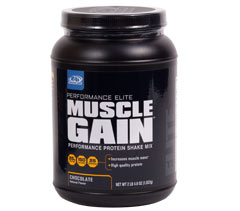Supplements in Sports Nutrition: Food First, Always
When it comes to optimizing athletic performance, nutrition experts overwhelmingly agree on one principle: prioritize a well-rounded diet and smart training before turning to supplements. While certain supplements can be beneficial when used correctly, they should never replace the foundational elements of proper nutrition and consistent training.
According to the Cleveland Clinic’s Health Essentials, a food-first approach is essential. Supplements should only be used to address specific nutritional gaps or needs that can’t be met through diet alone.
Key Considerations from Sports Nutrition Professionals
1. Food First
A balanced diet rich in macronutrients (proteins, carbohydrates, and healthy fats) and micronutrients (vitamins and minerals) lays the groundwork for athletic performance and recovery. Whole foods also provide fiber, antioxidants, and other bioactive compounds that supplements often lack.
2. Individualized Needs
Supplementation isn’t one-size-fits-all. My Sports Dietitian emphasizes that any supplement plan should be tailored to the athlete’s unique goals, sport, training load, and current dietary intake.
3. Safety and Regulation
Many supplements on the market are not tightly regulated. Mass General Brigham cautions that some may contain harmful substances or fail to meet label claims. Always choose third-party tested products certified by organizations like NSF Certified for Sport or Informed-Sport.
4. Evidence-Based Options
Only a handful of supplements have consistently demonstrated performance-enhancing effects in scientific research. According to the NIH, these include:
-
Caffeine – Supports focus and endurance
-
Creatine – Enhances short-term strength and power output
-
Beta-alanine – May help buffer fatigue in high-intensity efforts
5. Timing and Dosage Matter
Even evidence-backed supplements can be ineffective—or even risky—if not used properly. A registered sports dietitian can provide guidance on how and when to take supplements for best results.
6. Potential Risks
Supplements can interact with medications, cause unwanted side effects, or lead to anti-doping violations if contaminated with banned substances. The Better Health Channel highlights the importance of knowing exactly what you’re consuming.
7. Professional Guidance Is Essential
Today’s Dietitian Magazine stresses that athletes should consult with a qualified sports dietitian or healthcare provider before starting any supplement routine. Personalized advice ensures safe and effective use.
Supplements That May Be Considered (with Guidance)
-
Protein Powder – Useful when dietary intake falls short of protein needs for muscle recovery and growth.
-
Creatine Monohydrate – May support power and strength gains; effectiveness varies by individual.
-
Caffeine – Shown to improve focus and endurance, but should be used in moderation.
-
Omega-3 Fatty Acids – May help reduce inflammation and support recovery.
-
Multivitamins – Can help fill minor nutritional gaps, especially during travel or intense training blocks.
Final Takeaway
A structured diet and training regimen are the true foundation of athletic success. Supplements should be used selectively—and only to complement a diet that’s already sound. By prioritizing food first and seeking expert guidance, athletes can enhance performance safely and sustainably.

Great Tasting Liquid Multi-Vitamin with minerals and rich in Antioxidants.
 The majority of people take a multi-vitamin and mineral in capsule or tablet form. Studies have shown that the body only absorbs between 10% to 20% of the nutrients available in capsulated form, which means of every $100.00 spent on capsules or tablets, approximately $90.00 is wasted.
The majority of people take a multi-vitamin and mineral in capsule or tablet form. Studies have shown that the body only absorbs between 10% to 20% of the nutrients available in capsulated form, which means of every $100.00 spent on capsules or tablets, approximately $90.00 is wasted.
When a capsule or tablet is swallowed, it takes between 20 to 25 minutes to break down in the stomach. Even though most people take a capsule or tablet with water, the water passes quickly, leaving only the stomach acids to poorly distribute the nutrients.
1STEP is made with 100% spring water along with the highest-grade vitamins and minerals. Because of the high percentage of water in the body, nearly 100% of the nutrients from 1STEP Liquid is retained, and the vitamins and minerals are absorbed almost immediately. Try Great Tasting 1Step Liquid Multi-Vitamin
NOTE: Athletes please make sure ALL SUPPLEMENTS are NCAA compliant before using.





